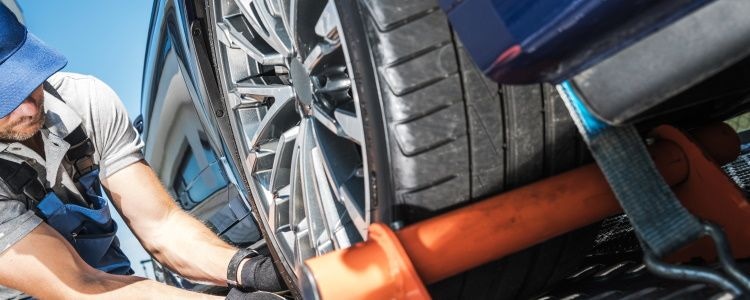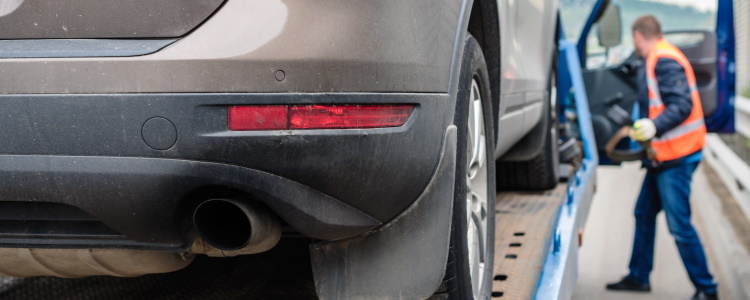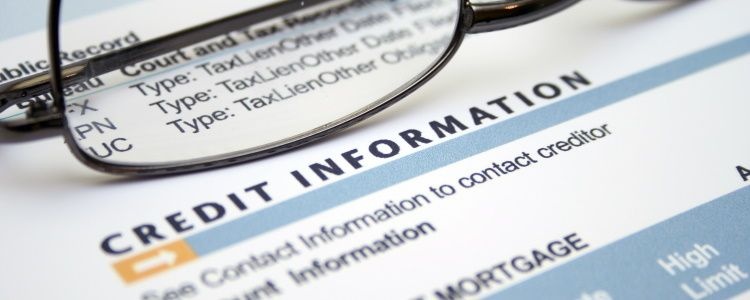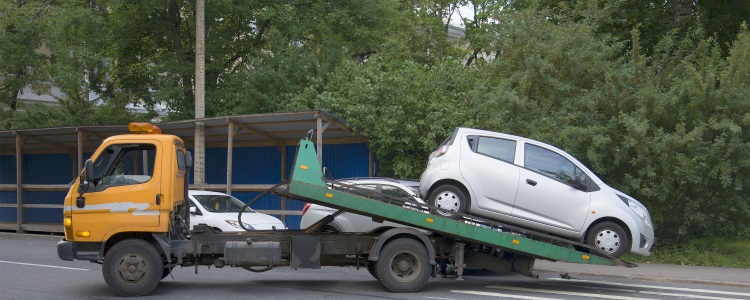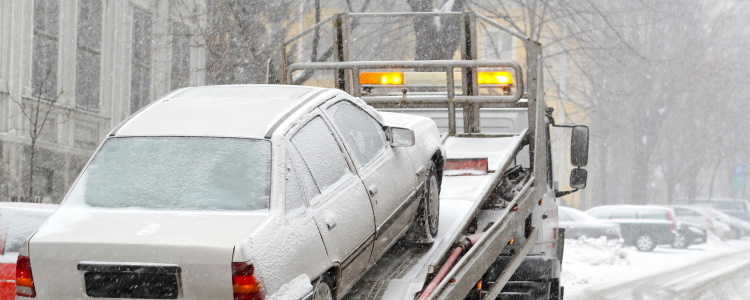Recovery companies are pretty skilled at their craft of locating and towing vehicles away, and they’re used to overcoming the lengths that people take to avoid them. If you do manage to successfully hide your vehicle from the repo man, that doesn’t mean you’ve beaten the lender and that’s the end of it. Here’s what happens if the repo company can’t recover your car.
Can You Hide Your Car From Repossession?
Once the repo process has begun, the repo man can take your vehicle from your driveway, your workplace parking lot, or even while you’re out shopping. Typically, recovery companies attempt to find your car for up to 30 days.
In some cases, lenders can start the repossession process as soon as one day after a missed payment. You should also be aware that many lenders don’t give you notice of when or where they’re going to repo the vehicle. But, depending on where you live, they may be required to.
Some borrowers attempt to keep their car in a locked garage during the search, which is one of the only places where a recovery company can’t take your vehicle. Other tactics may include taking off the license plate, parking down the road, and leaving your car at a friend’s house – the list goes on. Unfortunately, repo companies are familiar with these avoidance tactics.
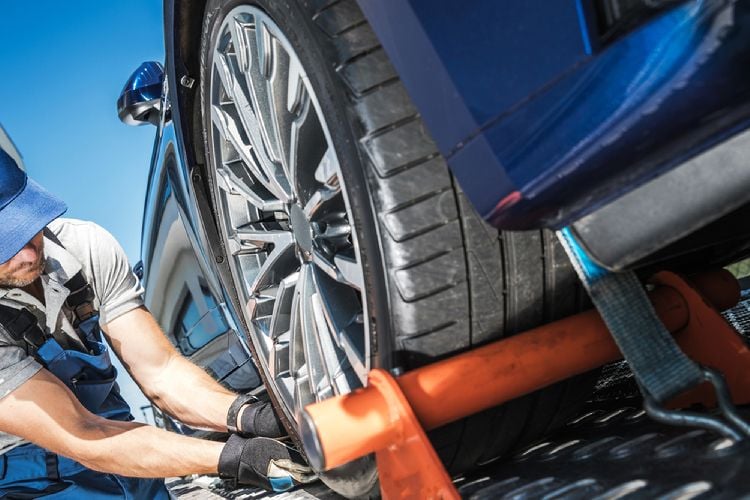
If you do manage to keep your car hidden from the repo company, the lender isn’t going to give up.
If the recovery company can’t find your car, they contact the lender and let them know they are unsuccessful. Next, your lender is likely to take legal action. Your auto lender can take you to court and get an order that forces you to return the car. If you refuse to hand over the vehicle, you may be charged with theft – which is a whole other can of worms.
Trying to hide your vehicle from the repossession company isn’t recommended. The longer the lender has to pay to keep the repo company searching, the more you may owe. And, if the lender takes you to court, expect more fees associated with the court hearings.
The Replevin Process Helps Lenders
The replevin process is different from the repossession process. In most states, your lender isn’t required to let you know when/where they’re going to collect your car via a recovery company. For a replevin, though, the lender must notify you if they pursue it, and you have the right to attend the hearing and dispute it.
However, if you’ve defaulted on your auto loan or broken the loan contract, it’s likely that the lender can win the case and get the order to take the vehicle. Especially if you've been purposefully hiding the vehicle from them.
In addition to taking the car, the lender can still charge you for hiring the recovery company and any storage fees that your vehicle incurs (since most repo’d vehicles are stored before they’re sold at auction). You’re still responsible for the remaining loan balance after the auction sale proceeds are put toward the balance, called the deficiency balance.
How the Repo Man Can Get Your Car
If you purposely hide your car to avoid repossession, and the repo man can’t get to it without using force, your creditor may ask for legal assistance.
What they can do is request an order of replevin or a monetary judgment against you. Replevins are a type of lawsuit, according to legal experts at Nolo.com, where a creditor gets an order from the court requiring you to give up the vehicle. Monetary judgments are determined by how much you owe on the auto loan, plus any extra fees.
You’re entitled to a written notice of your creditor’s intent to obtain an order of replevin. You’re also given a chance for a hearing, with written notice of location, date, and time of it, as well as the right to dispute.
The laws of states are different, and the time you’re given to respond to the complaint and request a hearing varies. Make sure you look up your state’s laws about replevin and ask a lawyer for further advice.
Replevin is a legal action taken against you, and shouldn’t be taken lightly. If you don’t comply and refuse to turn the car over to the repossession company, you could be faced with civil and/or criminal penalties.
Can You Prevent a Repossession?
If you’re worried about your vehicle being repossessed, you may be able to stop it from occurring. How? By talking to your lender.
Let them know what’s going on, that you’re worried about missing a payment, and ask if they can help. Some lenders are willing to let you skip a payment and move it to the next month or the end of the loan term.

Another option your lender may suggest is to refinance the loan. When you refinance, you’re replacing your current loan with a new, hopefully better, loan. The main goal of refinancing is to lower the monthly payment, and you can do this by either qualifying for a better interest rate or extending the loan term.
However, to qualify for refinance, you must have had the loan for at least a year, and your credit score must have improved since taking it out. In some cases, a lender may approve you for refinancing if your credit score hasn’t improved much, although this isn’t always possible.
ACE Tip: If refinancing could help you prevent a repo, make sure you rate shop and find the best deal. You could refinance with your current lender, but you should have at least one other offer to compare it to.
Even if your lender explains that they can’t help, they’re going to appreciate the fact that you reached out to them ahead of time. Just like you, lenders don’t want to go through the repossession process, either. Even if your car does end up getting repossessed, you’re on much better terms with them because you tried to prevent it.
Communication is key to stopping a repo.
Stopping a repossession usually means being proactive and upfront with your lender – not hiding your car and avoiding contact with them. In fact, avoiding your lender’s calls and notices can strain the relationship between you two, making them less likely to help you out. It’s recommended you contact your lender at the first sign of financial instability, or as soon as you think you’re going to miss a car payment.
Can an auto loan deferment help?
Some lenders offer deferment programs for borrowers that are going through hardships such as sudden job loss, medical emergency, or other unexpected events that cause financial strife. A deferment pauses your car payments for a little while. Believe it or not, your lender probably wants to avoid the repossession process too. It’s a lengthy process that can cost you both time and energy.
Each lender’s deferment policy varies, so it’s important to read the fine print. For example, some lenders require that you continue to pay the interest during a deferment period, so you’re only skipping the principal payment. Keep in mind that deferred payments aren’t skipped and forgotten, either – they’re typically added to the back of the loan to be repaid later. A deferment option typically isn’t available if you’ve already missed a payment.
You've got options if deferment isn't the answer.
If you're already in the repossession process, there may be other avenues to explore to stop a repo. Typically, there are three options available to get out of a repo situation, only two of them leave you with your car, though.
- Reinstate your loan – If you’re already behind on your car payments, you may be able to reinstate your loan if you’re facing default and repo. These agreements typically involve paying all your missed payments in one lump sum to get back on track.
- Redeem your car loan – This involves paying for your auto loan’s balance in full. If your vehicle was repo’d already, you may be able to get it back by redeeming the loan. However, this may not be a viable option for many unless you have the money on hand.
- Surrender the vehicle – If deferring, reinstating, or redeeming your car loan aren’t options for your situation, then surrendering your vehicle could be the path of least resistance. Instead of waiting for the repo man to collect your car, you can voluntarily surrender it. This can save you money, too, since you don’t have to repay the lender for recovery fees, and you can drop off your car at your own convenience and remove your possessions.
The bottom line is that there are processes in place to assist borrowers in sticky situations with their auto loans. Hardships happen, and the more preemptive you are about resolving a possible repossession, the better your chances of getting a favorable outcome.



